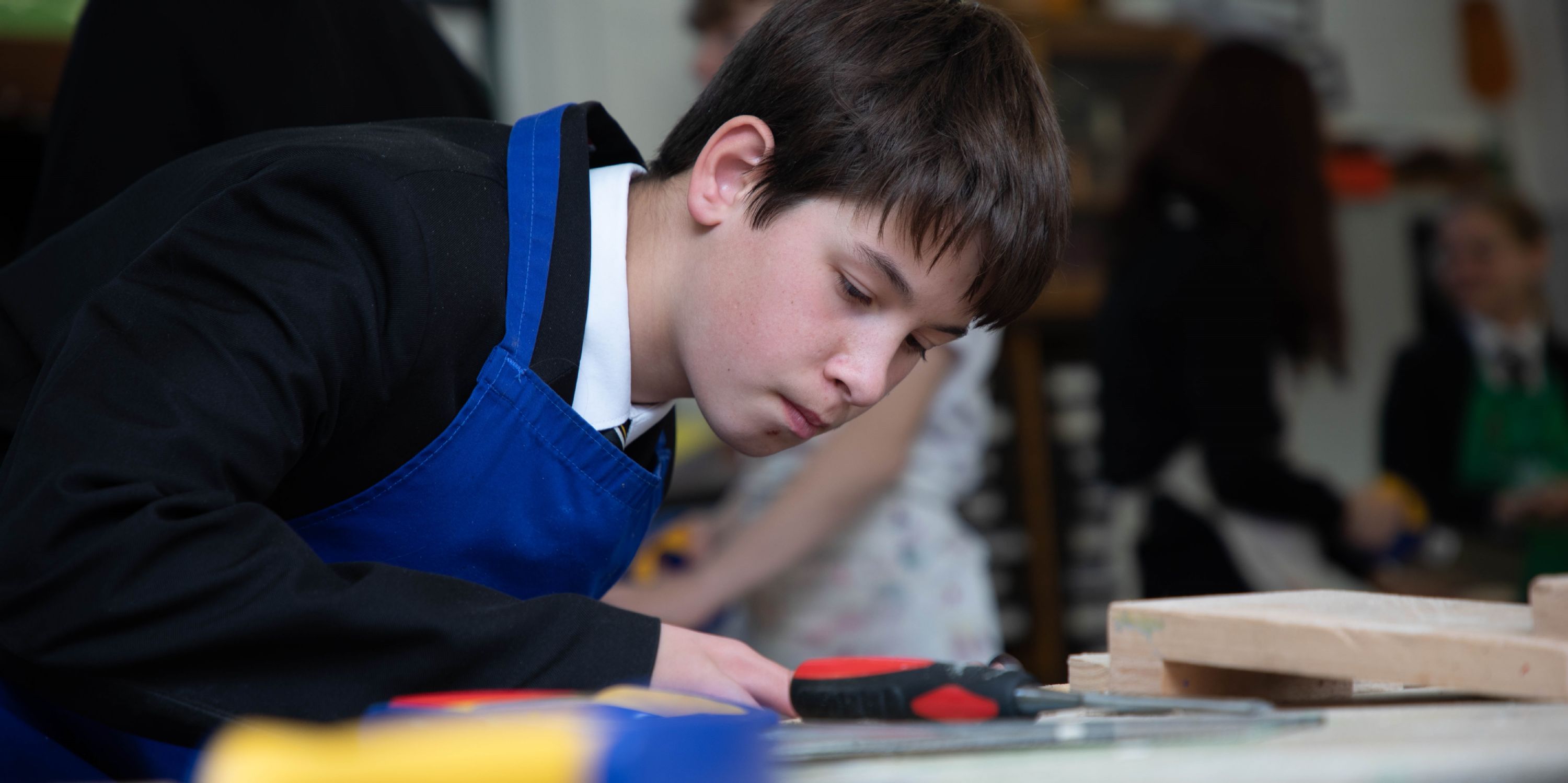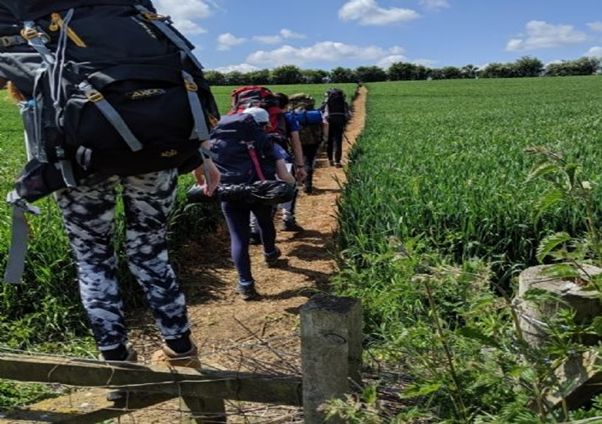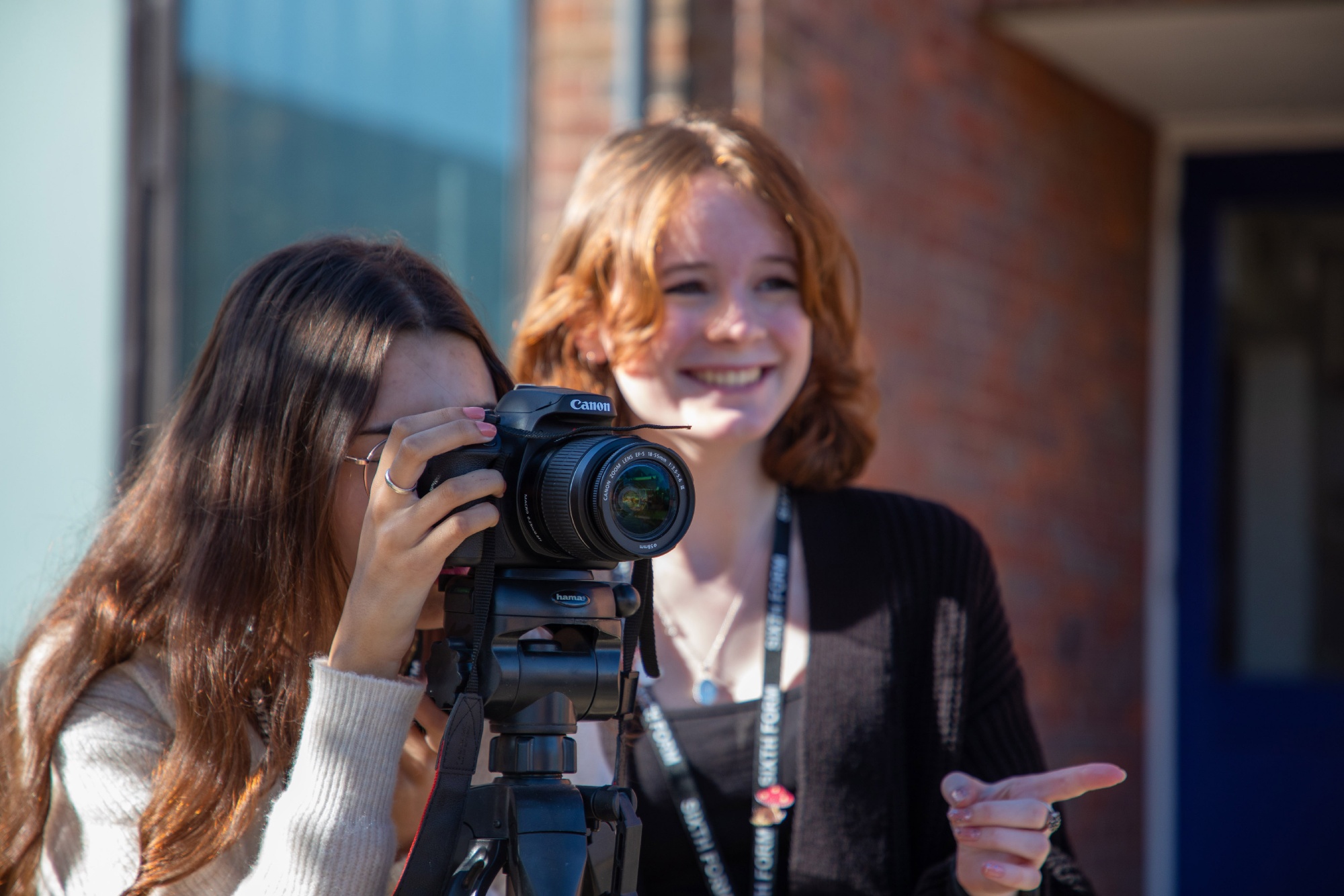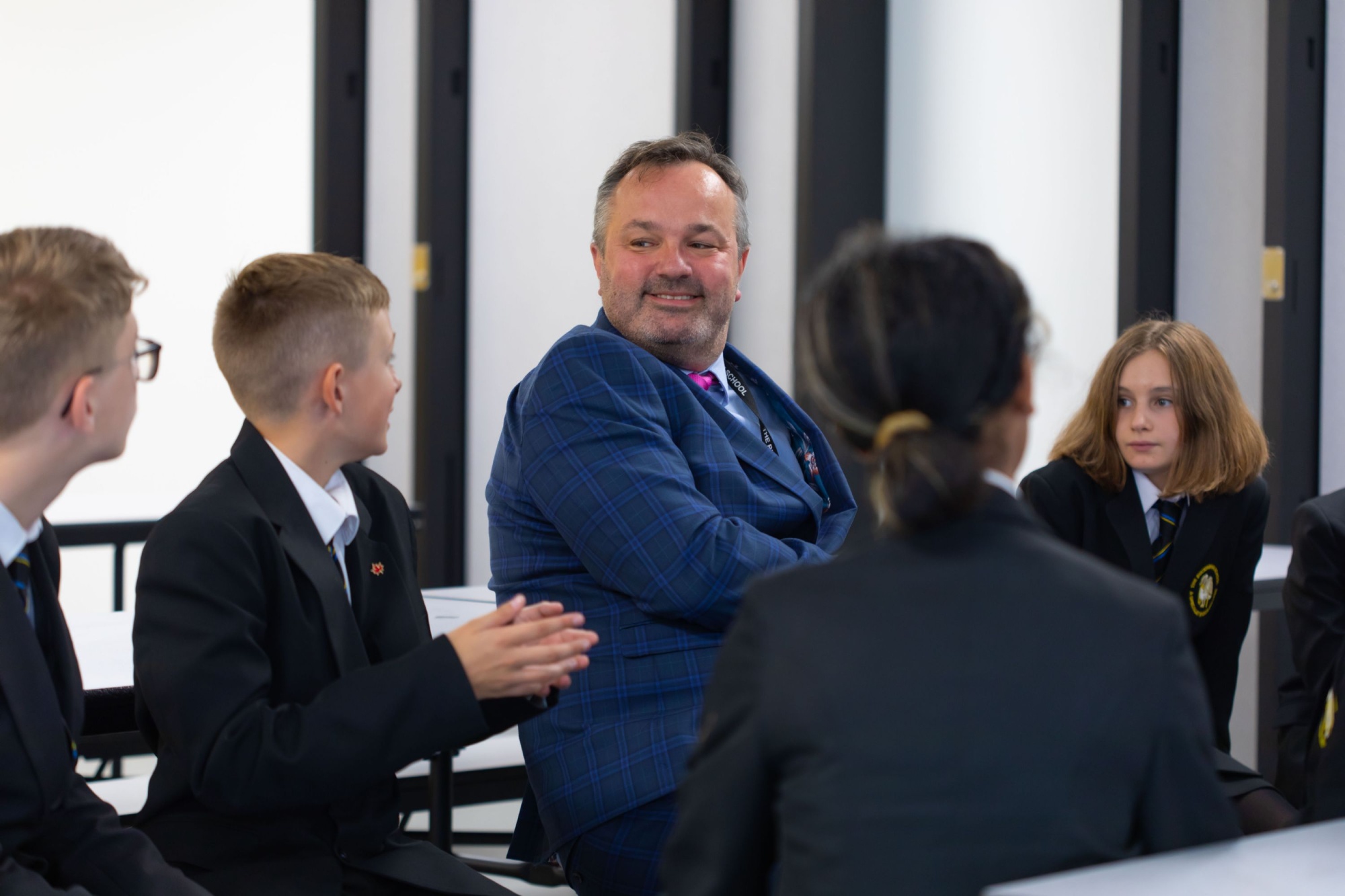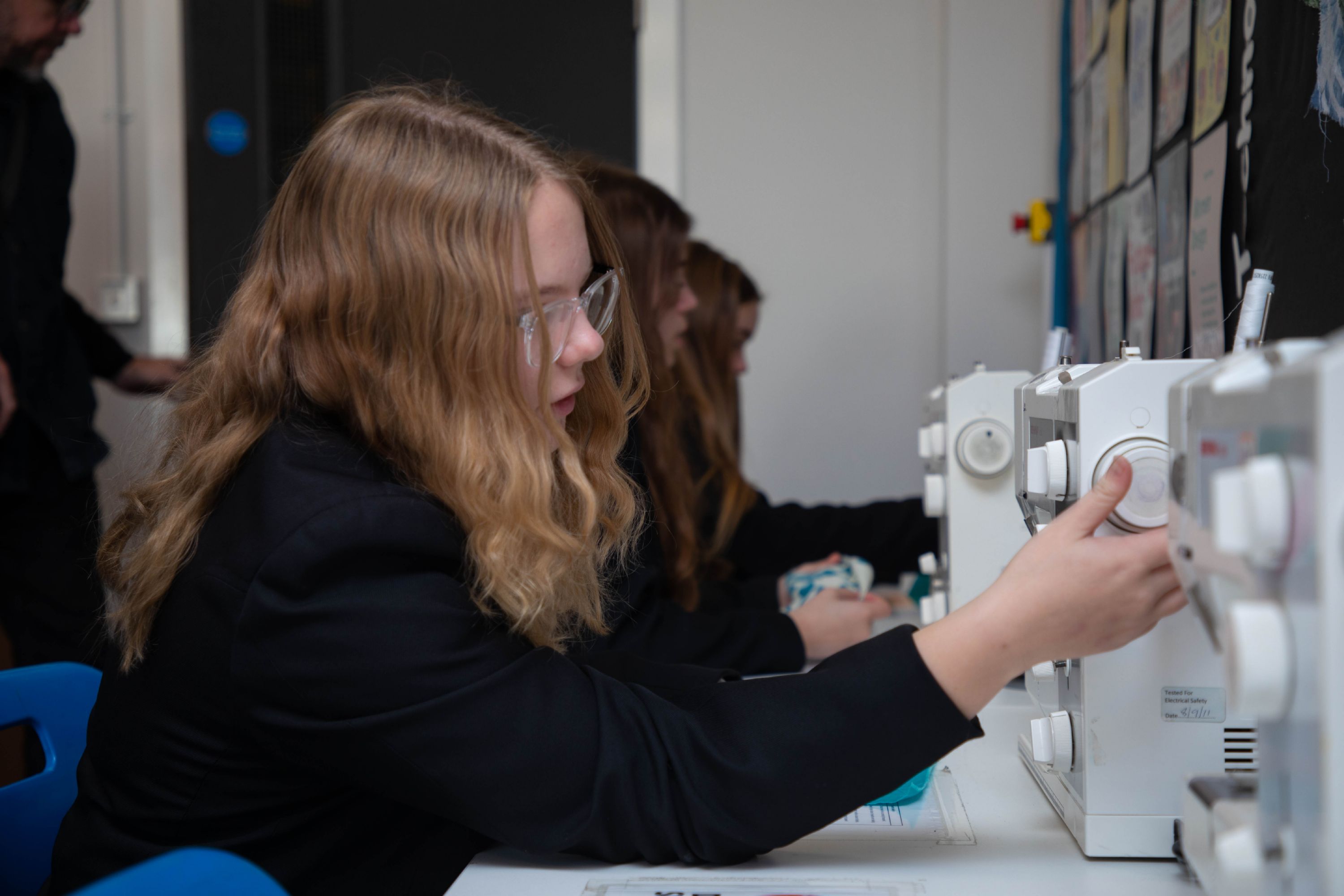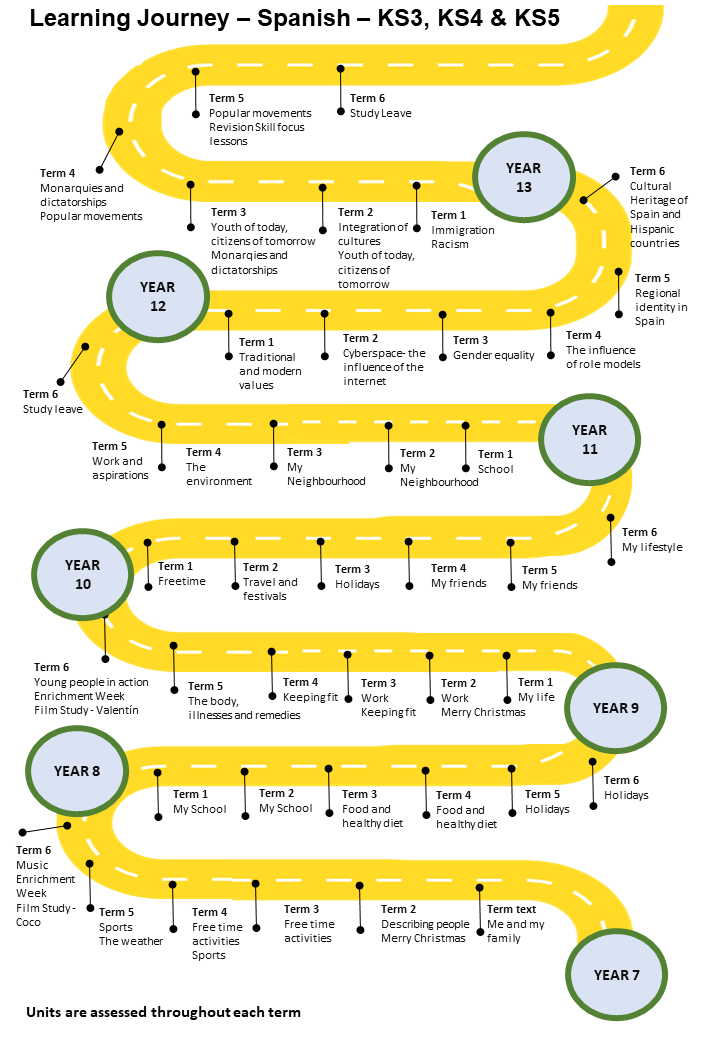Modern Foreign Languages
Modern Foreign Languages - Curriculum Intent:
The Modern Foreign Languages (MFL) curriculum at The Buckingham School is designed to broaden horizons, foster global citizenship, and equip students with the language and cultural knowledge needed for life in a diverse and interconnected world. Rooted in our core values of Respect, Responsibility and Reflection, our curriculum empowers all students to communicate confidently, think critically, and engage meaningfully with other cultures.
Language learning at The Buckingham School promotes Success for All by being inclusive, ambitious, and empowering. We nurture students to become curious, open-minded, and resilient learners who can use language for real-life purposes—whether for travel, study, work, or personal enrichment.
Modern foreign languages Ethos
Key Stage 3: Foundation – Engaged in building skills while showing kindness, curiosity and respect
Year 7 – Language Foundations and Cultural Awareness
- Focus: Phonics, core vocabulary, classroom interaction, basic grammar
- Respect: Appreciating linguistic diversity and cultural customs
- Responsibility: Regular vocabulary learning, active engagement
- Reflection: Identifying progress and setting personal language goals
Year 8 – Developing Communication and Cultural Understanding
- Focus: Expressing opinions, describing people and places, basic tenses
- Respect: Respectful discussion of other countries and ways of life
- Responsibility: Using target language consistently in class and active engagement
- Reflection: Responding to feedback and improving fluency
Year 9 – Confident Expression and Real-World Relevance
- Focus: Extended writing and speaking, real-life scenarios, future plans
- Respect: Exploring topical global issues with sensitivity
- Responsibility: Researching cultural contexts, independent revision and active engagement
- Reflection: Evaluating self and peer performances
End of KS3 Outcome: Engaged, kind, confident, respectful and curious learners with a strong foundation in language and culture, prepared for further study.
Key Stage 4: Independent – Becoming Independent and Culturally Literate Communicators
Years 10 & 11 – AQA GCSE French/Spanish
- Focus: Listening, speaking, reading, writing, translation and cultural awareness across three broad themes: People and lifestyle, Popular culture and Communication and the world around us.
- Respect: Deepening understanding of different cultures and viewpoints.
- Responsibility: Active engagement in lessons, independent learning, effective exam preparation and vocabulary retention.
- Reflection: Analysing strengths and areas for improvement in all skill areas
End of KS4 Outcome: Independent, articulate, and culturally aware communicators who can use their language skills for travel, further study or the workplace.
Key Stage 5: Exemplary – Deepening Expertise and Global Understanding
Years 12 & 13 – AQA A Level French/Spanish
- Focus: Advanced communication skills, critical analysis of film and literature, in-depth exploration of social issues, political contexts and cultural heritage across the French - or Spanish - speaking world
- Respect: Engaging thoughtfully with complex global themes and diverse perspectives.
- Responsibility: Independent research, consistent revision, active use of authentic resources, and sustained target language use.
- Reflection: Evaluating linguistic progress and critical engagement with content through discussion, essay writing and debate.
End of KS5 Outcome:
Exemplary, articulate, informed and culturally fluent linguists equipped for further study, international opportunities or global careers. Students leave with a profound appreciation of language as a tool for understanding the world.
Summary:
The MFL curriculum at The Buckingham School is:
- Inclusive – accessible to all learners, regardless of prior experience
- Aspirational – prepares students for global opportunities and future success
- Values-Driven – guided by Respect, Responsibility, and Reflection
Our curriculum offers a rich and coherent journey that not only develops language proficiency but also fosters cultural empathy and prepares students to thrive in a multilingual world.
Careers in modern foreign languages
Modern Foreign Languages: Careers in Languages
Overview of Career Pathways
Studying a modern foreign language can lead to a wide variety of exciting career opportunities across the world. Language skills are in high demand in international business, travel and tourism, diplomacy, education, translation, interpreting, media and more.
Knowing another language allows you to connect with other cultures, communicate effectively in global settings and access opportunities that require intercultural awareness and communication.
In a globalised world, languages give you a competitive edge and open doors to working in international organisations, global companies or even abroad.
Skills Gained from Studying Languages
Language learners develop a wide range of valuable, transferable skills, including:
- Communication and public speaking
- Cultural awareness and sensitivity
- Problem-solving and critical thinking
- Memory and concentration
- Research and analytical skills
- Listening and comprehension
- Adaptability and resilience
- Organisation and time management
- Translation and interpreting techniques
- Confidence when using another language in real-life situations
These skills are not only vital for language-based roles but are also highly sought-after in many other careers.
Career Pathways
There are four main pathways into careers that use language skills:
- Translation and Interpreting – Helping people understand each other across languages in written or spoken form.
- Business and International Relations – Using languages in marketing, sales, finance, or diplomacy.
- Education and Academic Fields – Teaching languages or using them in research and higher education.
- Media, Travel, and Cultural Sectors – Working in journalism, tourism, content creation, or cultural exchange.
Example Careers in Languages
Translator or Interpreter
- Translates written texts or interprets spoken language in meetings, events, or legal settings
- Works in business, healthcare, law, or international relations
Diplomatic or International Relations Officer
- Represents a country or organisation abroad
- Works with embassies, governments, or international organisations like the UN or EU
Language Teacher
- Teaches in schools, colleges, or as a private tutor
- May also lead language clubs, trips abroad, or cultural events
Tour Guide or Travel Industry Specialist
- Works in tourism, travel planning, or hospitality
- Uses language skills to support visitors from other countries
International Marketing or Sales Executive
- Works for global companies managing clients or customers overseas
- Uses cultural knowledge to adapt products or campaigns
Journalist or Content Creator
- Writes for international publications or creates content for multilingual audiences
- May work in media, PR, or digital communication
Cultural and Arts Officer
- Works on international arts projects or cultural exchanges
- Uses language to coordinate events and engage communities
Next Steps
If you're interested in a career involving languages:
- Take part in language clubs, exchange programmes, or pen pal projects
- Consider GCSE and A-Level Modern Foreign Languages or language-based courses at college or university
- Travel, volunteer, or work abroad where possible
- Explore work experience in schools, businesses or international organisations
Languages connect us to the world. Whether you're teaching, translating, travelling, or managing international projects – studying a language gives you skills that last a lifetime and can take you anywhere.
Learning Journey - Spanish

